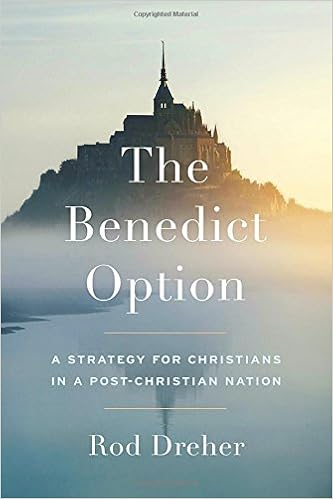Everyone was filled with awe, and many wonders and signs were being performed through the apostles.
—Acts 2:43
The mainstream media has discovered the empty pew. Everywhere I turn online, publications weigh in to explain dwindling church attendance in the United States. The pile-on of doom has been so intense of late, you wonder if the reporting verges on glee as one more despised institution crumbles into dust.
To every article I encounter, I post the same comment. It’s a quote from British/American revivalist Leonard Ravenhill:
You never have to advertise a fire.
This past week amplified the truth of that quote as people around the United States flew, drove, bicycled, and walked, sometimes hundreds of miles, to dwell in the shadow of the moon. The April 8, 2024, total eclipse captured the imagination of millions seeking a rare experience, an awesome thrill irreproducible via AI, CGI, Apple Vision Pro, or a vivid imagination. It was a cosmic event too big, too wondrous to ignore.
Call it a “fire in the sky.”
At the risk of alienating fellow believers. I’m going to state what I believe is the obvious. No one is banging down the doors of our churches because, in far too many of them, the glory has departed. Whatever fire of God burned brightly within the church walls has dimmed or departed.
What has remained after this Ichabod event is whatever human beings can substitute. Manmade experiences fill the void. You get a rock band, a million dollar sound system of epic decibels, a half-million dollar lighting rig of retina-frying lumens, attractive people on stage, special effects to empower the sermon message, and voila! You have the average megachurch meeting. Ramp that up now and then for a “special event” to pull in the lost, and now you’re cooking with FIRE.
Except none of this is the fire of God, the Spirit He promises to all who believe. The Spirit whose presence in their midst stirred the early Church to awe.
Too critical?
I wonder how long it took the priests of the Temple in Jerusalem to realize something was amiss. They’d killed that troublemaker Jesus, so they must have thought their troubles were over. Except some vandal tore the temple curtain that restrained the overwhelming glory of God’s Presence, exposing sinful men like themselves to the Shekinah, which at one time was instant death for the unprepared.
Except nothing. Nothing happened because, at the death of Jesus, the barrier that separated God from the unwashed masses disintegrated and the Shekinah glory of God no longer dwelt in temples built of stone but in sanctified hearts made by God Himself in His image. (More on this here.)
Do you think the priests noticed? Was the Temple colder? Emptier? Do you think they changed their rituals after God left? Or did they go on like nothing happened, sewing the curtain, and reverting to business as usual, unaware that they had become superfluous?
Do you think the priests felt the old fire return when Spirit-filled believers began to meet in the Temple? Did the presence of those born-again, fire-filled souls ignite in them a desperate thirst for what they had lost?
People need awe. People are desperate for the fire of God made manifest in their lives.
Are we failing this lost generation because we ourselves have lost the fire? Would we know if we had? Or would we go on substituting manmade experiences in an effort to keep the masses from missing the genuine fire that once burned brightly?
I ask this because rekindling that spiritual fire is the only answer to dwindling church attendance. And it absolutely boggles my mind that I can go into the comment section of any of these “Why is the Church in America losing attendance?” laments only to find a million excuses and countless solutions, and yet the answer given is NEVER “We need a reinvigoration by the Holy Spirit.”
Why? Because too many church leaders today have never had the Holy Spirit fall on them in that fire-filled way. They’ve never seen a genuine revival, the kind that would at one time sweep the world now and then. They’ve never seen the charismatic gifts of the Spirit in genuine operation (in fact, many have misguidedly crusaded against them).
So all or our offering of awe becomes manmade. We’ve substituted manmade smoke and mirrors for Spirit-sourced signs and wonders. We read the second chapter of Acts, and our response is “More strobe lights.”
People are dying for the kind of movement of God in their lives that the Bible holds up as the normal Christian experience. They’re desperate for healing for their diseases. They’re desperate for deliverance from their afflictions. They’re desperate for a move of God in their impossible situation, whatever it might be. They’re desperate.
Where is the fire of God? Church leaders need to start asking this and doing what it takes to answer it. Because when someone finally figures this out, we won’t need a church marketing campaign anymore because people will be beating down the doors to experience true, Spirit-filled fire.
Eclipse image © Bill Kilgallon. Used by permission.
Many reading know that Cerulean Sanctum has been moribund since I signed off about seven years ago. I wrote about my wife’s illness and its impact on our lives. We later had a terrible 2019 where she spent most of the year in and out of hospitals, only for us to finally find some calm as 2020 started. We all know what happened next.
But, praise God, my wife is coping better and is moving into new horizons helping others with mental illness. Our son is grown and graduated college. I find myself with more free time and more opportunities to think and pray deeply.
So, perhaps I will blog now and then on issues facing the Church in the America, because God knows they are piling up and the solutions some are offering are truly whack-a-doodle.
Father God, bring your holy Fire. Maranatha!


